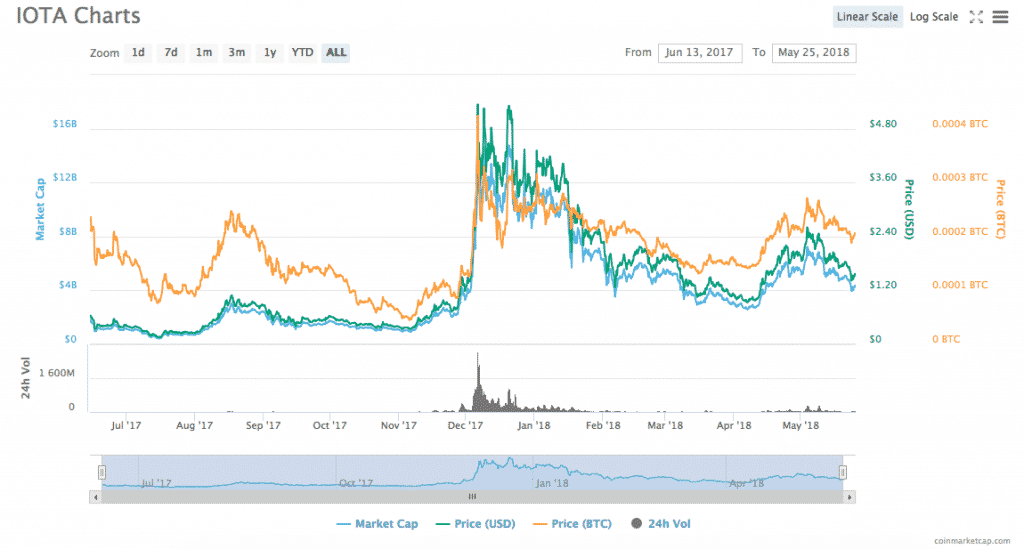IOTA has signed a Memorandum of Understanding with the United Nations Office for Project Services (UNOPS) in an initiative to improve the United Nations’ internal processes. UNOPS will make use of IOTA’s DAG-based ‘Tangle’ ledger to “explore how innovative data management tech can enhance the efficiency of humanitarian development operations.”
More specifically, “IOTA’s distributed ledger can provide a greater level of efficiency in the management and tracking of UN documents, supply chains and transactional Payments in real-time, with access available to both UNOPS and its partners,” said the blog post announcing the partnership.
“Shared ? problems require shared ? solutions.” We've partnered w/ @iotatoken to explore how innovative data management tech can enhance the efficiency of humanitarian & development operations. | #distributedledger https://t.co/GHbbB2Pm9d
— UNOPS (@UNOPS) May 22, 2018
UNOPS is a self-funding subsidiary of the United Nations that offers project and financial management services, human resources, and infrastructure management to the UN.
UNOPS’ operations in more than 80 countries, as well as connections with the World Bank, the United Nations Development Program, and the Department of Peacekeeping Operations, could present a series of significant opportunities for IOTA.
IOTA Steadily Moves Forward
This is the latest in a series of high-profile partnerships and collaborations that IOTA has garnered over the last six months. In Q4 2017, IOTA launched a data marketplace (with some controversy) boasting participants the likes of Microsoft and Fujitsu. In early 2018, IOTA partnered with ITIC to “build a global alliance of smart mobility test beds.” IOTA also launched a $37 million ‘Ecosystem’ to foster projects in the global development community.
At press time, a single IOTA token was trading for roughly $1.54, down from a January peak of around $5.24.

In an exclusive interview with Finance Magnates earlier this year, IOTA Founder David Sønstebø said that "from the day we began [the IOTA network], we always said we were completely neutral when it came to ideology, we were going to focus on the pragmatic approaches. We created technology that works for the real world, not just concepts that reflect the rest of existence."


















